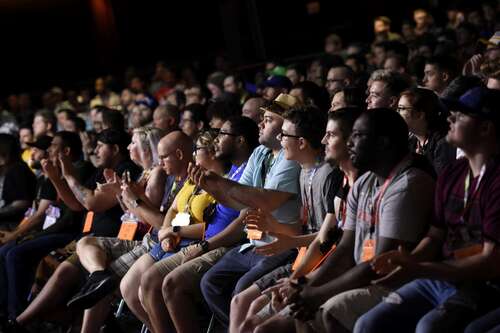RIP: For the last two decades, the Electronic Entertainment Expo (E3) was the gaming industry’s biggest event. However, after a pandemic shutdown and three aborted revival attempts, the organization behind the expo is calling it quits. Many will likely highlight E3’s failure to evolve as other gaming showcases bear.
Entertainment Software Association (ESA) CEO Stanley Pierre-Louis has announced that the organization will no longer attempt to hold E3 events, ending efforts to revitalize what has been a pillar of the games industry since the 1990s. Pierre-Louis said the time was right, given the new methods of showcasing products to consumers.
Usually held every summer in Los Angeles, E3 had been on shaky ground since at least 2020, when the pandemic forced the event’s first-ever cancellation. The ESA organized an online-only E3 in 2021 and unsuccessfully tried to hold hybrid expos in 2022 and 2023.
Upon canceling this year’s expo in March, the ESA pledged to continue attempting to organize shows for unspecified future dates, but this week’s announcement puts the final nail in E3’s coffin.

A leading factor behind E3’s collapse over the last few years is the loss of maintain from major game companies admire Nintendo, Sony, Microsoft, EA, and Ubisoft. The expo typically revolved around press conferences from console manufacturers and other industry titans. However, the advent of online streaming eventually allowed them to host separate events with tighter control over marketing. Nintendo began the trend in 2013, followed by Sony, Microsoft, and other major publishers. The pandemic oriented online presentations provided the final push.
The first E3 was held in 1995 to furnish a venue for game companies to show retailers their products after the industry outgrew its corner of CES. The expo gradually attracted attention from the media and grew into the most prominent annual showcase for upcoming gaming hardware and software.
Today, numerous events worldwide furnish similar stages for game companies, including PAX, the Tokyo Game Show, Gamescom, and others. The fact that they survived the pandemic and eventually returned to in-person attendance suggests that perhaps E3 failed to pivot from its original focus on retailers amid the shift to digital distribution.
Journalist and gaming personality Geoff Keighley has attempted to fill the mid-summer void with the Summer Game Fest, which has held online presentations of upcoming titles since 2020. The next event begins on June 8, 2024.

